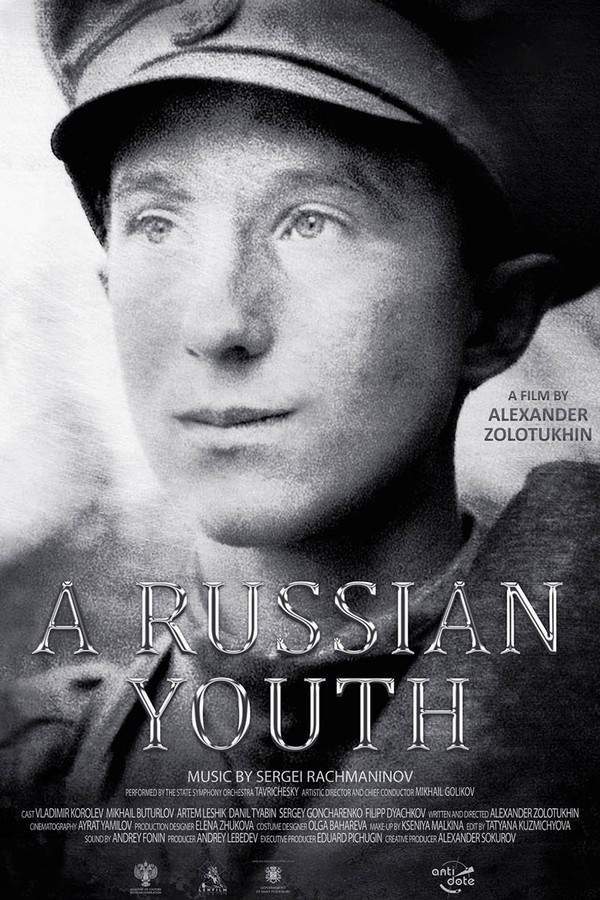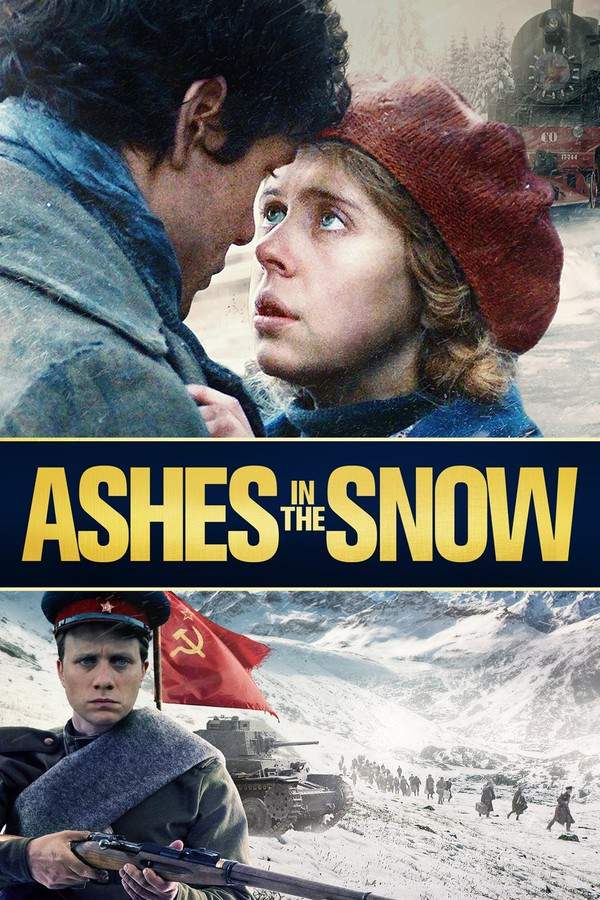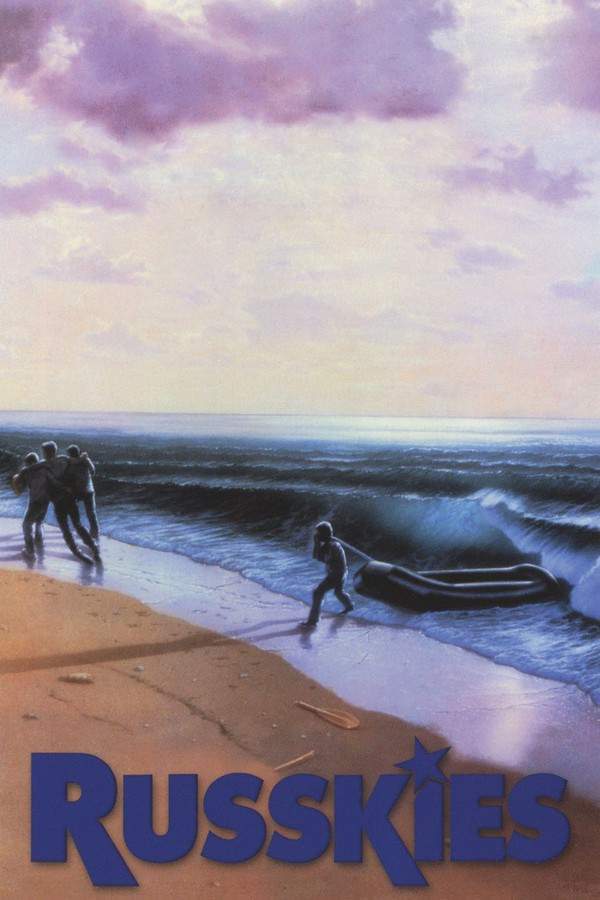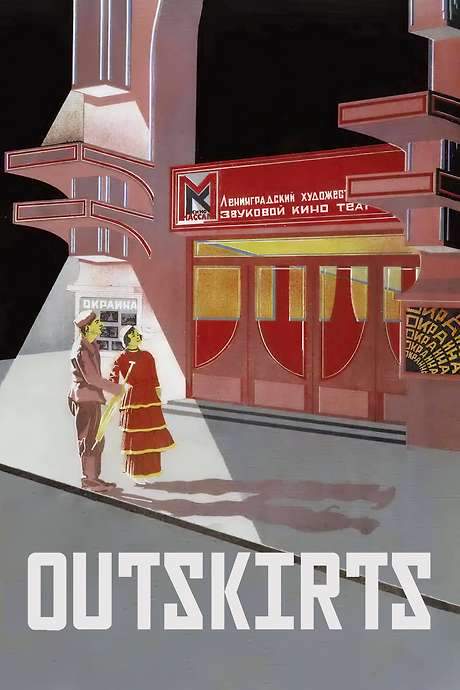A Russian Youth 2020

Driven by a yearning for glory, a young man named Alexei leaves his village to fight in the trenches of World War I. His initial ideals of heroism are quickly challenged as he experiences the harsh realities of war and confronts its devastating impact on himself and those around him. The film portrays a loss of innocence and a sobering look at the cost of conflict.
Does A Russian Youth have end credit scenes?
No!
A Russian Youth does not have end credit scenes. You can leave when the credits roll.
Meet the Full Cast and Actors of A Russian Youth
Explore the complete cast of A Russian Youth, including both lead and supporting actors. Learn who plays each character, discover their past roles and achievements, and find out what makes this ensemble cast stand out in the world of film and television.
External Links and Streaming Options
Discover where to watch A Russian Youth online, including streaming platforms, rental options, and official sources. Compare reviews, ratings, and in-depth movie information across sites like IMDb, TMDb, Wikipedia or Rotten Tomatoes.
Ratings and Reviews for A Russian Youth
See how A Russian Youth is rated across major platforms like IMDb, Metacritic, and TMDb. Compare audience scores and critic reviews to understand where A Russian Youth stands among top-rated movies in its genre.

6.3 /10
IMDb Rating

55
%
User Score

3.3
Take the Ultimate A Russian Youth Movie Quiz
Challenge your knowledge of A Russian Youth with this fun and interactive movie quiz. Test yourself on key plot points, iconic characters, hidden details, and memorable moments to see how well you really know the film.
A Russian Youth Quiz: Test your knowledge about the film 'A Russian Youth' with this challenging quiz.
What historical event sets the stage for the story in 'A Russian Youth'?
The Second World War
The Russian Revolution
The Crimean War
The First World War
Show hint
Full Plot Summary and Ending Explained for A Russian Youth
Read the complete plot summary of A Russian Youth, including all major events, twists, and the full ending explained in detail. Explore key characters, themes, hidden meanings, and everything you need to understand the story from beginning to end.
The First World War marked a profound tragedy that set off a series of arduous tests for the Russian populace, encompassing the revolution, civil war, famine, and political repression, leading into the Second World War. Such immense challenges undoubtedly shaped a generation. What remarkable courage and patience must those individuals have exhibited to endure the tumultuous landscape of the 20th century? What were their thoughts and feelings during these trying times? These poignant questions are the foundation upon which the film “A Russian Youth” is built.
The narrative follows a humble village boy who, driven by a naïve youthful dream of honor and glory, enlists at the frontlines of the First World War. However, his aspirations are dashed when, in his first encounter on the battlefield, he loses his sight. Forced to adapt to his new reality, he assumes the role of a listener, requiring him to attentively monitor incoming threats through large metal funnels and sound the alarm for approaching enemy aircraft.
During that era, the backbone of the Russian Empire’s military was predominantly comprised of peasants and the working class—individuals who bore distinct features and toiled intensely in their daily lives. “A Russian Youth” uniquely incorporates numerous non-professional actors, discovered on the streets, in factories, and among military school cadets. This casting choice lends an authentic touch to the film’s portrayal of the Russian experience during the war.
Accompanying this compelling tale is the stirring music of Sergei Rachmaninoff, whose compositions echo the tensions of an era rife with upheaval. His Third Piano Concerto (Op. 30), composed in 1909, resonates with a visceral energy that foreshadows the approaching chaos of the 20th century. One can discern Rachmaninoff’s ominous foresight regarding the people’s destiny in the lyrical and poignant melodies of this piece. Three decades later, as the Second World War loomed, he crafted “Symphonic Dances” (Op. 45)—an even bolder and more dynamic opus that marked the end of his creative journey.
Uncover the Details: Timeline, Characters, Themes, and Beyond!

Coming soon on iOS and Android
The Plot Explained Mobile App
From blockbusters to hidden gems — dive into movie stories anytime, anywhere. Save your favorites, discover plots faster, and never miss a twist again.
Sign up to be the first to know when we launch. Your email stays private — always.
Watch Trailers, Clips & Behind-the-Scenes for A Russian Youth
Watch official trailers, exclusive clips, cast interviews, and behind-the-scenes footage from A Russian Youth. Dive deeper into the making of the film, its standout moments, and key production insights.
A Russian Youth Themes and Keywords
Discover the central themes, ideas, and keywords that define the movie’s story, tone, and message. Analyze the film’s deeper meanings, genre influences, and recurring concepts.
A Russian Youth Other Names and Titles
Explore the various alternative titles, translations, and other names used for A Russian Youth across different regions and languages. Understand how the film is marketed and recognized worldwide.
Similar Movies To A Russian Youth You Should Know About
Browse a curated list of movies similar in genre, tone, characters, or story structure. Discover new titles like the one you're watching, perfect for fans of related plots, vibes, or cinematic styles.
Quick Links: Summary, Cast, Ratings, More

What's After the Movie?
Not sure whether to stay after the credits? Find out!
Explore Our Movie Platform
New Movie Releases (2025)
Famous Movie Actors
Top Film Production Studios
Movie Plot Summaries & Endings
Major Movie Awards & Winners
Best Concert Films & Music Documentaries
Movie Collections and Curated Lists
© 2025 What's After the Movie. All rights reserved.
































